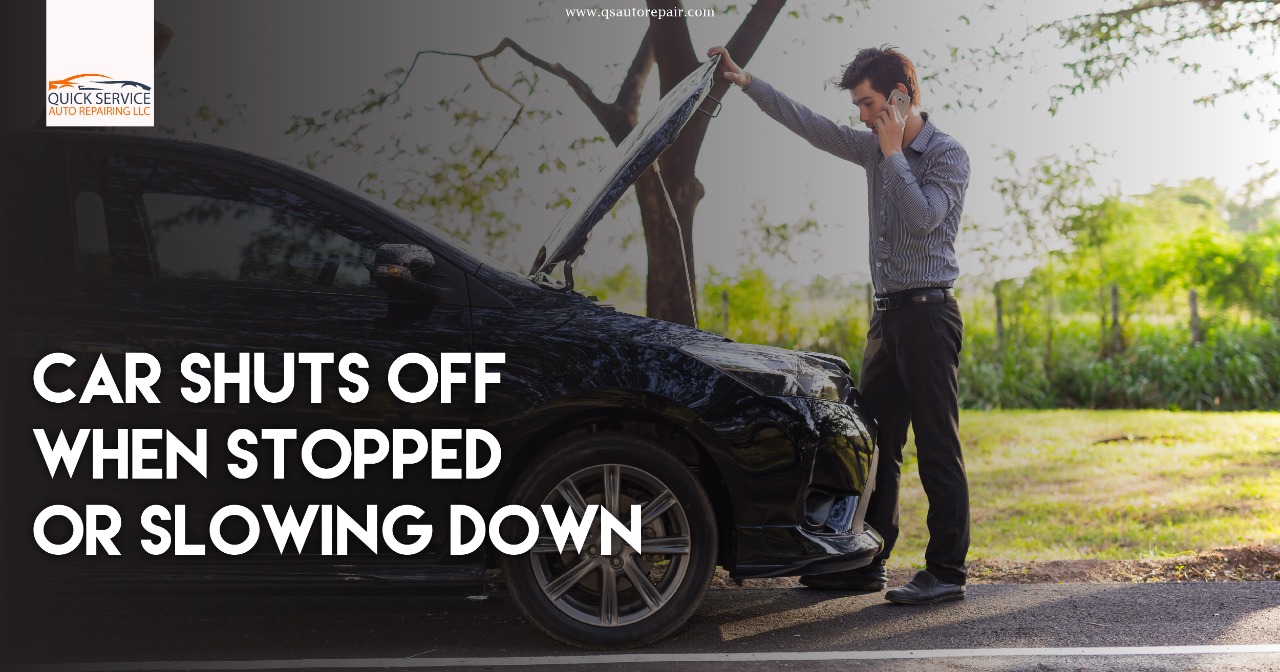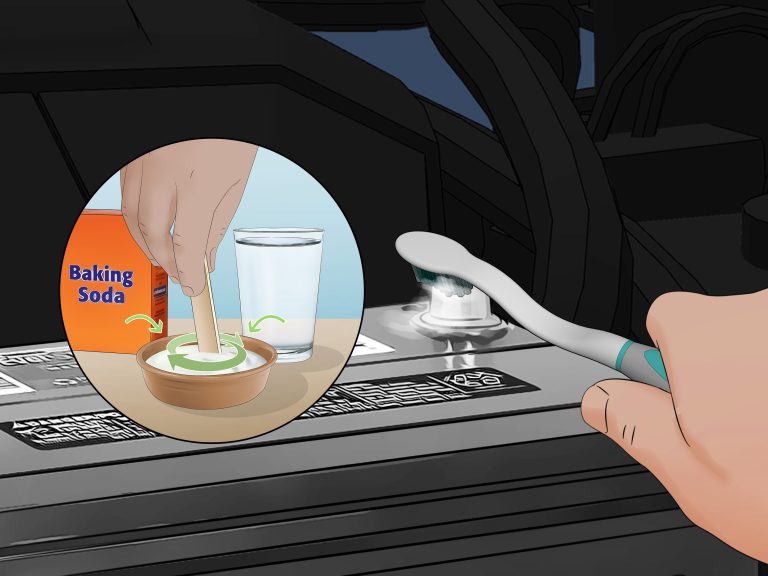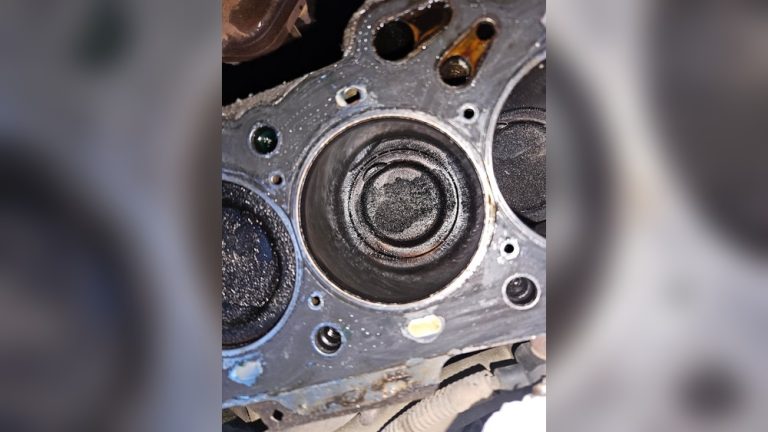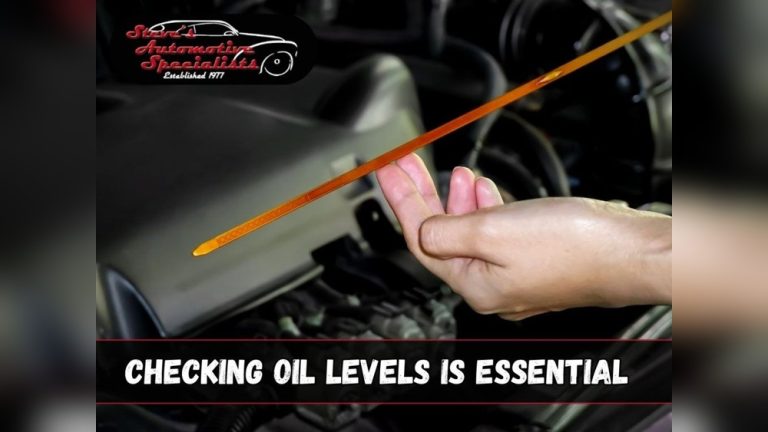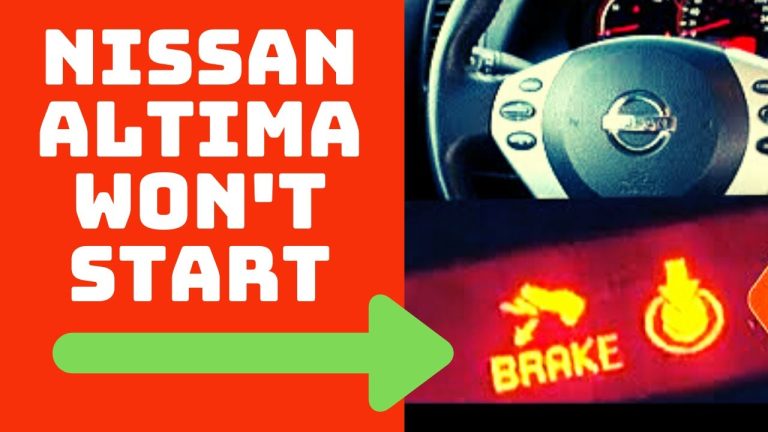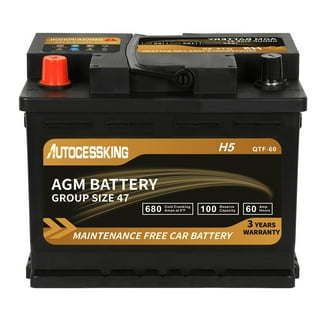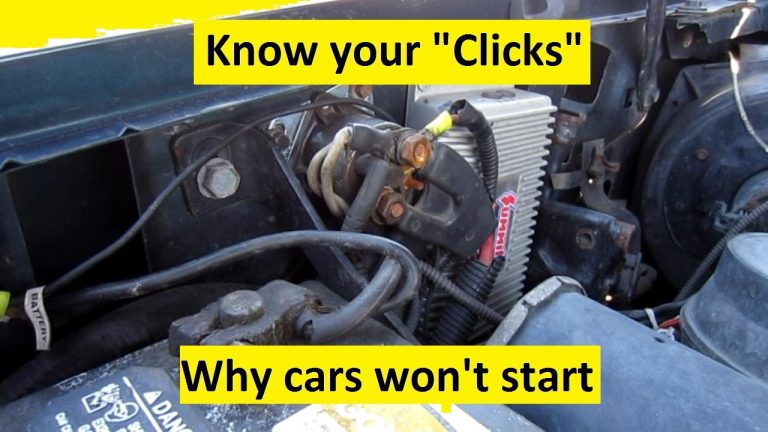Car Shuts off When Stopped Or Slowing Down: Causes & Fixes
A car that shuts off when stopped or slowing down may have issues with the idle air control valve, faulty fuel pump, dirty throttle body, or a failing torque converter. It could also indicate a vacuum leak or sensor malfunction. Diagnostic testing is recommended to pinpoint the exact cause.
You’re not alone. Many drivers face this problem, and it can strike at the most inconvenient times, leaving you stranded or anxious about your next drive. Understanding why your car behaves this way is crucial for your peace of mind and safety on the road.
We’ll delve into the common reasons behind this issue and provide practical solutions to get you back on track. Imagine driving with confidence, knowing that every stop and slowdown will be smooth and worry-free. Stay with us, and by the end of this read, you’ll be equipped with the knowledge to tackle this problem head-on.

Credit: www.reddit.com
Car Shuts off When Stopped Or Slowing Down
Common Reasons For Car Shutdown
Experiencing a car that shuts off unexpectedly can be alarming. Understanding the reasons behind this can help in diagnosing and fixing the issue. Various factors contribute to a car shutting down when stopped or slowing down. Addressing these problems promptly ensures a safer and smoother driving experience.
Read more: My Car Shuts off While Driving But Starts Back Up: Solve Now
Battery Issues
A weak battery can cause your car to shut off. If the battery is old or not charging properly, it may fail to power essential components. Regularly check battery health and ensure connections are tight.
Fuel System Problems
Fuel system issues often lead to shutdowns. A clogged fuel filter prevents proper fuel flow, causing the engine to stall. Regular maintenance of the fuel system helps prevent this issue.
Ignition System Failure
Ignition system failure can disrupt engine function. Faulty spark plugs or ignition coils can lead to engine misfires. Replace worn-out parts to keep the ignition system working smoothly.
Idle Air Control Valve Malfunction
The idle air control valve regulates engine idle speed. If it malfunctions, the engine may shut off at low speeds. Cleaning or replacing the valve can solve this problem.
Transmission Problems
Transmission issues can cause the car to stall. Problems with the torque converter or transmission fluid level can lead to shutdowns. Regular checks ensure the transmission operates efficiently.
Read more: Car Won’t Start Without a Jump: Troubleshoot Tips
Electrical Issues
Electrical problems can cause unexpected shutdowns. Faulty wiring or components may interrupt power supply. Inspecting electrical connections can help identify and resolve these issues.
Fuel System Issues
Experiencing your car shutting off when stopping or slowing can indicate fuel system issues. Clogged fuel filters, failing fuel pumps, or faulty injectors often cause this problem. Regular maintenance helps prevent these disruptions, ensuring smoother drives.
Fuel system issues can be a significant culprit if your car shuts off when stopped or slowing down. The fuel system is like your car’s lifeline, ensuring the engine receives the right amount of fuel to function smoothly. When it falters, your car might unexpectedly stall at a traffic light or during a leisurely drive. You might be left scratching your head, wondering what went wrong. Let’s delve into some common fuel system issues that could cause these annoying interruptions.
Fuel Pump Failure
The fuel pump plays a critical role in delivering fuel from the tank to the engine. If the fuel pump is malfunctioning, it might not supply enough fuel, causing your car to shut off when idling or slowing down. Picture this: you’re on your way to a family gathering, and suddenly your car stalls at a stop sign. Frustrating, right? Regular maintenance checks can help catch a failing fuel pump early, avoiding such inconveniences.
Clogged Fuel Filter
A clogged fuel filter can block the fuel flow to your engine. This blockage can make your car stall during low-speed maneuvers or while stopping. Think of it as trying to drink a smoothie through a blocked straw. Eventually, the engine gets starved of fuel, causing the car to shut off. Changing the fuel filter regularly can prevent this issue.
Dirty Fuel Injectors
Fuel injectors spray fuel into the engine for combustion. When they become dirty or clogged, the spray pattern might be disrupted, causing an uneven fuel supply. This imbalance can lead to stalling when your car slows down. Imagine being late for an important meeting, only for your car to stall because of dirty fuel injectors. Cleaning them periodically can save you from such embarrassing moments.
Fuel Pressure Regulator Problems
The fuel pressure regulator ensures your engine receives fuel at the correct pressure. If it fails, the pressure could be too high or too low, affecting engine performance and causing stalling. Have you ever noticed your car idling rough before shutting off? This could be a sign of a faulty fuel pressure regulator. Regular checks can help keep it in good working condition. Are you experiencing any of these symptoms? Addressing fuel system issues promptly can prevent unexpected stalls and keep your car running smoothly. Have you checked your fuel system lately? It might be time for a look under the hood.
Electrical System Problems
Cars shutting off while stopping or slowing can indicate electrical system issues. Problems may include a failing alternator or battery, causing power loss. Regular maintenance checks help identify and fix these issues.
Experiencing your car shutting off when stopped or slowing down can be frustrating, especially if you’re unsure why it’s happening. One common culprit is the vehicle’s electrical system. This intricate network powers everything from your headlights to the engine control unit. A malfunction in this system can unexpectedly cut power to your engine, leaving you stranded. Understanding these electrical issues can help you diagnose the problem and prevent future occurrences.
Battery Issues
A weak or failing battery might not provide enough power to keep your engine running when you slow down. If you notice dimming lights or a slow crank when starting your car, your battery could be the issue. Regularly check the battery terminals for corrosion and ensure the connections are tight.
Alternator Problems
The alternator is responsible for charging your battery and powering the electrical system while your car is running. If it fails, your battery can quickly drain, causing your car to shut off. Listen for unusual sounds from the engine bay or look for a battery warning light on your dashboard. Have your alternator tested if you suspect it’s not working properly.
Faulty Wiring
Wiring issues can disrupt the flow of electricity in your car. Loose or damaged wires can cause intermittent power loss, leading to your car shutting off unexpectedly. Inspect visible wiring for wear and tear. Have a professional check more hidden areas to ensure everything is in good condition.
Ecu Malfunction
The Engine Control Unit (ECU) is like the brain of your car, managing various engine functions. A malfunctioning ECU can lead to incorrect signals being sent, causing your engine to stall. If your vehicle is showing erratic behavior, such as misfiring or inconsistent idling, the ECU might be the culprit. Consider getting a diagnostic scan to pinpoint any ECU issues.
Sensor Failures
Modern cars rely on numerous sensors to monitor and adjust engine performance. A faulty sensor, like the Mass Air Flow (MAF) sensor or the Oxygen sensor, can send incorrect data to the ECU, disrupting engine operation. If your check engine light is on, it might indicate a sensor problem. Address these warnings quickly to maintain your car’s performance. Have you faced any of these electrical issues before? Addressing them promptly can prevent your car from shutting off unexpectedly. Regular maintenance and inspections can help catch these problems early. Your safety and the reliability of your vehicle depend on a well-functioning electrical system. Don’t wait for a small problem to become a major inconvenience.
Engine Management Faults
Experiencing a car that shuts off when stopped or slowing down can be frustrating. This issue often points to engine management faults, affecting the car’s performance. Regular maintenance and diagnostics can help identify and fix these problems, ensuring smoother driving experiences.
Engine management faults can be quite frustrating, especially when your car shuts off unexpectedly at a stop or while slowing down. It’s a common issue that many drivers face, but understanding its causes can help you tackle the problem effectively. This section will guide you through some potential engine management faults and how they might be affecting your vehicle’s performance.
Understanding Engine Control Unit (ecu) Issues
The ECU is the brain of your car, controlling various engine functions. A malfunction here can lead to your car shutting off unexpectedly. Have you noticed erratic idling or sudden stalls? These could be signs of ECU issues. Regular diagnostics can help pinpoint these problems before they escalate.
Fuel System Troubles
A faulty fuel system can also cause your car to die when stopped. Fuel pump failures or clogged injectors might be starving your engine of fuel. Imagine being in a traffic jam, and your car just won’t budge. Regular maintenance of fuel filters and pumps can prevent such inconveniences.
Sensor Malfunctions
Your car relies on various sensors to regulate engine operations. If a sensor fails, it can lead to incorrect air-fuel mixture or ignition timing, causing the engine to shut off. Have you ever considered how a tiny sensor could lead to a big problem? Check engine lights are often the first indicator of sensor issues.
Idle Air Control Valve Problems
The idle air control valve regulates the engine’s idle speed. If it’s dirty or faulty, it can cause the engine to stall at low speeds. Ever wondered why your car stalls at a red light? Cleaning or replacing this valve could be the solution.
Vacuum Leaks
Vacuum leaks disrupt the air-fuel mixture, leading to engine stalls. These leaks can be tricky to spot but have a significant impact on your engine’s performance. A simple smoke test can reveal hidden leaks, saving you from unexpected shutdowns. Each of these faults offers a unique challenge, but with regular checks and timely repairs, you can keep your car running smoothly. Have you ever faced engine management issues? How did you resolve them? Share your experiences in the comments below.
Effective Solutions And Repairs
Experiencing a car that shuts off when stopped or slowing down can be frustrating. Identifying the problem often involves checking the fuel system, idle control valve, or spark plugs. Regular maintenance and prompt repairs ensure smoother, safer drives.
When your car unexpectedly shuts off at a stoplight or while slowing down, it can be both frustrating and dangerous. Understanding the root causes and implementing effective solutions is crucial for both safety and peace of mind. Let’s dive into some practical solutions and repairs to keep your car running smoothly.
Inspect The Idle Air Control Valve
The idle air control (IAC) valve regulates the engine’s idling speed. A malfunctioning IAC valve can cause your engine to stall when you stop or slow down. Check the valve for dirt and debris. Cleaning it can often resolve the issue. If cleaning doesn’t help, consider replacing the valve. A mechanic can guide you on this.
Check The Fuel System
A clogged fuel filter or faulty fuel pump can lead to insufficient fuel reaching the engine. This might cause the car to shut off. Make sure to replace the fuel filter as per the manufacturer’s recommendation. It’s a simple and cost-effective step. If the problem persists, a professional inspection of the fuel pump might be necessary.
Examine The Spark Plugs
Worn-out spark plugs can cause your engine to misfire and stall. Replacing them can improve engine performance. Regular maintenance checks can catch these issues early. Ensure your spark plugs are in good condition. A simple replacement can often solve stalling problems.
Test The Battery And Alternator
A weak battery or failing alternator can lead to electrical issues, causing the car to shut off unexpectedly. Test your battery’s charge and the alternator’s output. Many auto shops offer free testing services. Replace any failing components to ensure your car runs smoothly.
Investigate The Engine Control Unit
The Engine Control Unit (ECU) manages various engine functions. A malfunctioning ECU can cause your car to stall. Ensure the ECU is functioning properly. Sometimes, a software update can resolve the issue. Consult with a technician to address complex ECU problems.
Consider The Transmission System
In automatic cars, transmission issues can cause stalling. Check the transmission fluid level and condition. Low or dirty fluid can affect performance. Regular fluid changes can prevent stalling. Seek a professional evaluation if transmission problems persist. — Engaging with your car’s health proactively can prevent many stalling issues. Have you experienced a car shutting off unexpectedly? Share your thoughts and any solutions you’ve tried. By taking small steps now, you can avoid bigger problems later on.

Credit: www.linkedin.com

Credit: www.reddit.com
Frequently Asked Questions
Why Does My Car Shut Off When Stopped?
A faulty idle air control valve can cause the car to stall when stopped. Check for engine issues.
Could A Dirty Throttle Body Cause Stalling?
Yes, a dirty throttle body can disrupt air flow, leading to stalling. Cleaning may resolve the issue.
Is Low Fuel Pressure A Reason For Stalling?
Low fuel pressure can cause engine stalling. Inspect fuel pump and filter for potential issues.
Can Electrical Problems Cause My Car To Shut Off?
Electrical issues, like a bad alternator, can cause stalling. Check battery and alternator connections.
Does A Failing Sensor Affect Engine Performance?
Yes, a faulty sensor can impact engine behavior. Consider checking oxygen or mass airflow sensors.
Conclusion
Experiencing car shut-offs can be frustrating and dangerous. Understanding possible causes helps. Check your fuel system and battery first. These are common culprits. Inspect sensors and spark plugs too. Regular maintenance can prevent many issues. Don’t ignore warning signs. Early detection saves time and money.
Consult a mechanic if unsure. Professional help ensures safety. Keep your car running smoothly with timely checks. Stay informed and proactive. A well-maintained car keeps you safe on the road. Remember, prevention is key. Drive confidently with a reliable vehicle.
Your car’s health matters.

